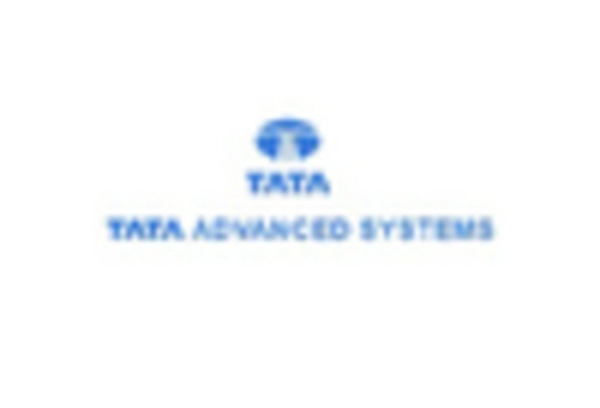Technological Innovations in Fuel Production
Advancements in technology are playing a pivotal role in the sustainable aviation-fuel market. Innovations such as improved feedstock conversion processes and enhanced production techniques are making it more feasible to produce sustainable aviation fuels at scale. For instance, the development of waste-to-fuel technologies is enabling the conversion of agricultural waste into aviation fuel, which could potentially reduce production costs by up to 30%. These technological breakthroughs not only enhance the efficiency of fuel production but also contribute to the overall sustainability of the aviation sector. As these technologies mature, they are expected to significantly impact the sustainable aviation-fuel market, making it more competitive with traditional fossil fuels.
Rising Demand for Eco-Friendly Travel Options
Consumer preferences in India are shifting towards more sustainable travel options, which is driving the sustainable aviation-fuel market. With increasing awareness of climate change, travelers are seeking airlines that prioritize environmental responsibility. This trend is reflected in a survey indicating that over 60% of Indian travelers are willing to pay a premium for flights using sustainable aviation fuels. Airlines are responding to this demand by incorporating sustainable fuels into their operations, thereby enhancing their brand image and customer loyalty. The growing emphasis on eco-friendly travel is likely to propel the sustainable aviation-fuel market, as airlines strive to meet consumer expectations while reducing their carbon footprint.
International Commitments to Carbon Neutrality
India's commitment to achieving carbon neutrality by 2070 is influencing the sustainable aviation-fuel market. This ambitious goal necessitates a substantial reduction in greenhouse gas emissions across all sectors, including aviation. The sustainable aviation-fuel market is positioned as a key component in achieving these targets, as it offers a viable alternative to conventional jet fuels. The Indian government is likely to implement stricter regulations on emissions, which will further incentivize airlines to adopt sustainable fuels. This alignment with international climate agreements is expected to foster growth in the sustainable aviation-fuel market, as stakeholders recognize the importance of transitioning to greener alternatives.
Government Incentives for Sustainable Aviation Fuel Production
The Indian government is actively promoting the sustainable aviation-fuel market through various incentives aimed at reducing carbon emissions. Initiatives such as tax breaks and subsidies for producers are designed to encourage investment in sustainable fuel technologies. The government has set ambitious targets, aiming for a 20% reduction in aviation emissions by 2030. This regulatory framework not only supports the development of sustainable aviation fuels but also aligns with India's commitment to the Paris Agreement. As a result, the sustainable aviation-fuel market is expected to witness significant growth, with projections indicating a potential market size of $1 billion by 2027. Such incentives are crucial for attracting both domestic and international investments in the sector.
Investment in Infrastructure for Sustainable Fuel Distribution
The development of infrastructure for the distribution of sustainable aviation fuels is crucial for the growth of the sustainable aviation-fuel market. Investments in refueling facilities and supply chain logistics are necessary to ensure that airlines can access sustainable fuels efficiently. The Indian government, in collaboration with private sector players, is exploring partnerships to enhance infrastructure capabilities. This includes establishing dedicated refueling stations at major airports, which could facilitate the widespread adoption of sustainable aviation fuels. As infrastructure improves, it is anticipated that the sustainable aviation-fuel market will expand, enabling airlines to transition more readily to greener fuel options.

















Leave a Comment